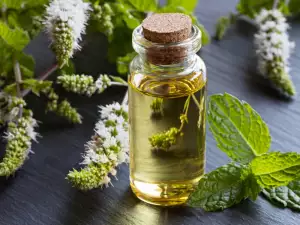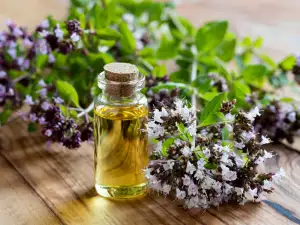Jojoba /Simmodsia Chinensis/ is a perennial herbaceous plant that resembles a tree shrub. Jojoba is a plant with berries and long roots. As a result, jojoba can survive in almost any conditions, but thrives best in temperate and dry environment. Comes from Southern California, Arizona and Mexico.
The unique properties of jojoba oil are prized by the ancient Egyptians. In the Egyptian pyramids have even been found examples of jojoba oil. Jojoba oil today has global popularity. And it is not accidental - this plant is unique in quality and composition throughout the plant kingdom.
Jojoba oil is extracted from the seeds of the jojoba tree. Serves a variety of purposes, but mostly works great on the skin, making it healthy and beautiful. Light gold color of the oil is a sign of its purity, and processed oil is clear and transparent. Nowadays, you can rarely find oil in its pure form, because it is extremely expensive.
Selecting and storing Jojoba
Jojoba is the most common form of oil, which was used for millennia. The oil itself is a liquid wax, which is obtained by a process of cold pressing. Jojoba oil is a very long-chain derivative, very reminiscent of whale blubber and human sebum.
It can very easily be refined into a colorless, odorless substance. The oil is extremely valuable because it is very resistant to rancidity. Has a long shelf life, and when added to other oils, extends their shelf life.

Benefits of jojoba oil
Jojoba oil is a true elixir for the skin. Due to its structure it is an invisible protective film on the skin. Jojoba oil is a precious concern for every type of skin, but is especially useful in dry, withered granted, additional construction and inflamed skin.
It is characterized by its anti-inflammatory properties that make it useful in inflammation and redness of the skin due to dermatitis. Can not be used in psoriasis and neurodermatitis. Moisturizes and penetrates deep into the pores of the skin - thereby improving blood circulation and lymphatic circulation, regenerates and nourishes. Helps synthesis of skin collagen.
Creates a protective layer of oil and grease and helps regulate sebum secretion. Does not cause irritation and allergic reactions, so it’s often used in the preparation of cleaning skin emulsions. Regular use of jojoba oil helps to restore the healthy appearance and softness of the skin.
Jojoba oil helps to remove all dirt and dust caught on the skin. Furthermore, protects the skin from harmful environmental influences and sunlight. It also helps to open the pores, and does not dry the skin, so it retains its natural moisture.

Jojoba oil is one of the best tools for removing makeup. Dip a cotton swab in a little jojoba oil, and very easily to remove foundation, eye shadow, blush, mascara eyes. The oil cleanses and soothes the most delicate areas of the face, such as the peri-ocular area. It works extremely favorably and even strengthens eyelashes.
Jojoba oil is very effective for hair care. Contained wax in it protects and surrounds the brittle hair - gives it natural strength and shine. For this reason, the oil from jojoba is widely used in nourishing hair masks. Gives volume and flexibility of the hair. Jojoba oil is a valuable tool for chapped lips and rough skin areas - such as elbows and heels.
In addition to cosmetics, the oil from jojoba are also used for therapeutic purposes - in warts, herpes, fungi of the feet and ulcerative wounds.
Jojoba oil has some peculiarities. In its pure form, it can be applied only on small areas of the skin. Upon impact on large areas, it is recommended to use a 10% solution.
















Comments